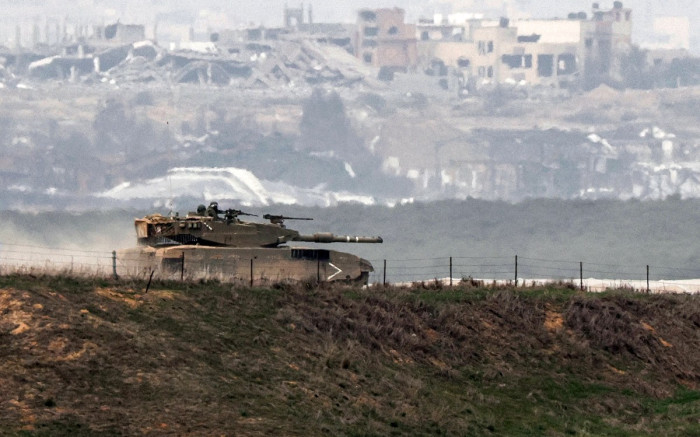
FILE – A Taiwanese national flag flies near the Taipei 101 building at National Dr. on May 7, 2023. Sun Yat-Sen Memorial Hall in Taipei, Taiwan. Weeks before Taiwan holds elections for its president and legislature, China has renewed its threat to use military force to annex the self-governing island democracy it claims as its own territory. (AP Photo/Chiang Ying-ying, File)
TAIPEI, Taiwan (AP) — Weeks before Taiwan holds elections for its president and legislature, China renewed its threat to use military force to annex the self-governing island democracy that it claims as its own territory.
Defense Ministry spokesman Col. Wu Qian told reporters at a monthly briefing on Thursday that China’s armed forces would “as always take all necessary measures to securely protect our national sovereignty and territorial integrity.”
Taiwan’s 23 million residents overwhelmingly support maintaining the island’s de facto independent status, so the Jan. 13 election will be largely decided by concerns about property prices, health care, employment and education. China has continued to send warships and fighter jets near Taiwan as an intimidation tactic, even though Taiwan’s military announced before the vote that it would raise the alert level.
The ruling party’s candidate, William Lai, is ahead in most polls, while the main opposition party’s candidate, Hou You-yi, has sought to appeal to voters who fear a military conflict with China that would involve the United States and the leadership take over could lead to massive disruptions in the global economy.
Hou’s campaign literature, distributed in Taipei on Thursday, reiterated his opposition to Taiwan independence and his approval of Beijing’s view of Taiwan as part of China.
Long a melting pot of Asian and European cultures, Taiwan was a Japanese colony for 50 years until it was handed over to the Chinese nationalist government of Chiang Kai-shek in 1945. The Nationalists, also known as the Kuomintang, moved to the island in 1949 after Mao Zedong’s Communist Party emerged victorious from a brutal conflict in mainland China that killed millions of people.
During Thursday’s press conference, Wu repeated accusations that the U.S. is encouraging Taiwan to deliberately increase tensions with China. Beijing has provided no evidence, but the claim is consistent with China portraying itself as an unofficial ally of Russia by opposing the long-prevailing Western liberal order and advocating authoritarian rule.
“Any attempt to use Taiwan to contain China is doomed to failure. … Pursuing independence through military force is a dead end,” Wu said.
Taiwan has responded to China’s military expansion by increasing its naval, air and ground forces, bolstered by the possibility of rapid intervention by U.S. and allied forces spread across the Asia-Pacific region.
China has the world’s largest standing military after the United States, with more than 2 million soldiers, as well as the largest navy and the second-largest annual defense budget
Still, the post of defense minister has been vacant since the previous holder, Li Shangfu, disappeared from office in August and was officially fired in October, with no word on the reason or his current circumstances. Li’s mysterious dismissal and that of former Foreign Minister Qin Gang have raised questions about support within the regime for Communist Party leader and head of state Xi Jinping, who has effectively made himself leader for life and sought to eliminate all political opponents .
Although the position of defense minister remains vacant, Xi on Monday appointed two newly promoted generals to key military commands. Wang Wenquan will serve as political commissar of the Southern Theater Command, which oversees China’s operations in the hotly contested South China Sea. Hu Zhongming will take over as naval commander as China works to establish itself as a global maritime power to protect its commercial interests, consolidate its influence in the South China Sea and East China Sea islands, and expand its global interests to power to weaken the USA.






Recent Comments